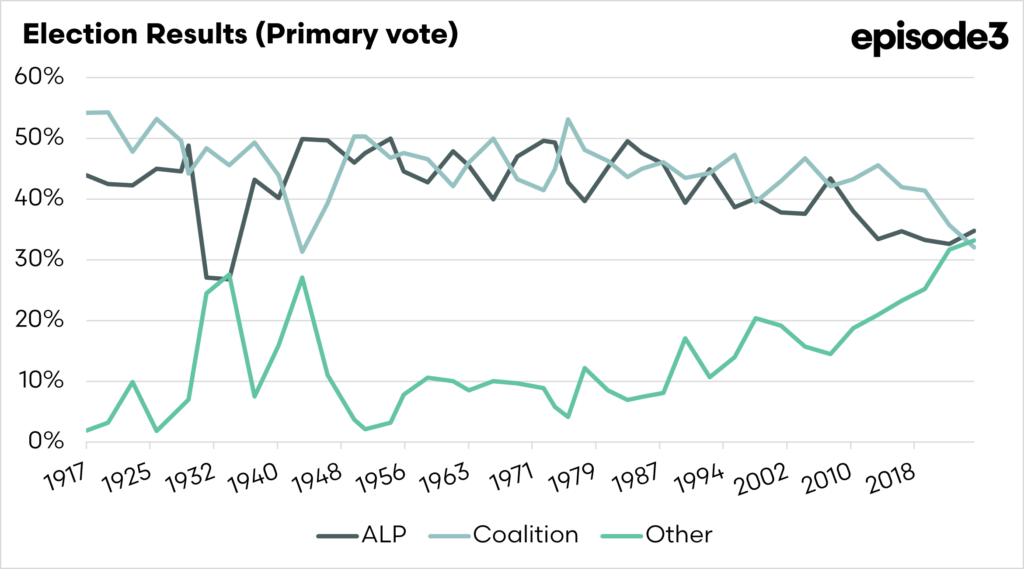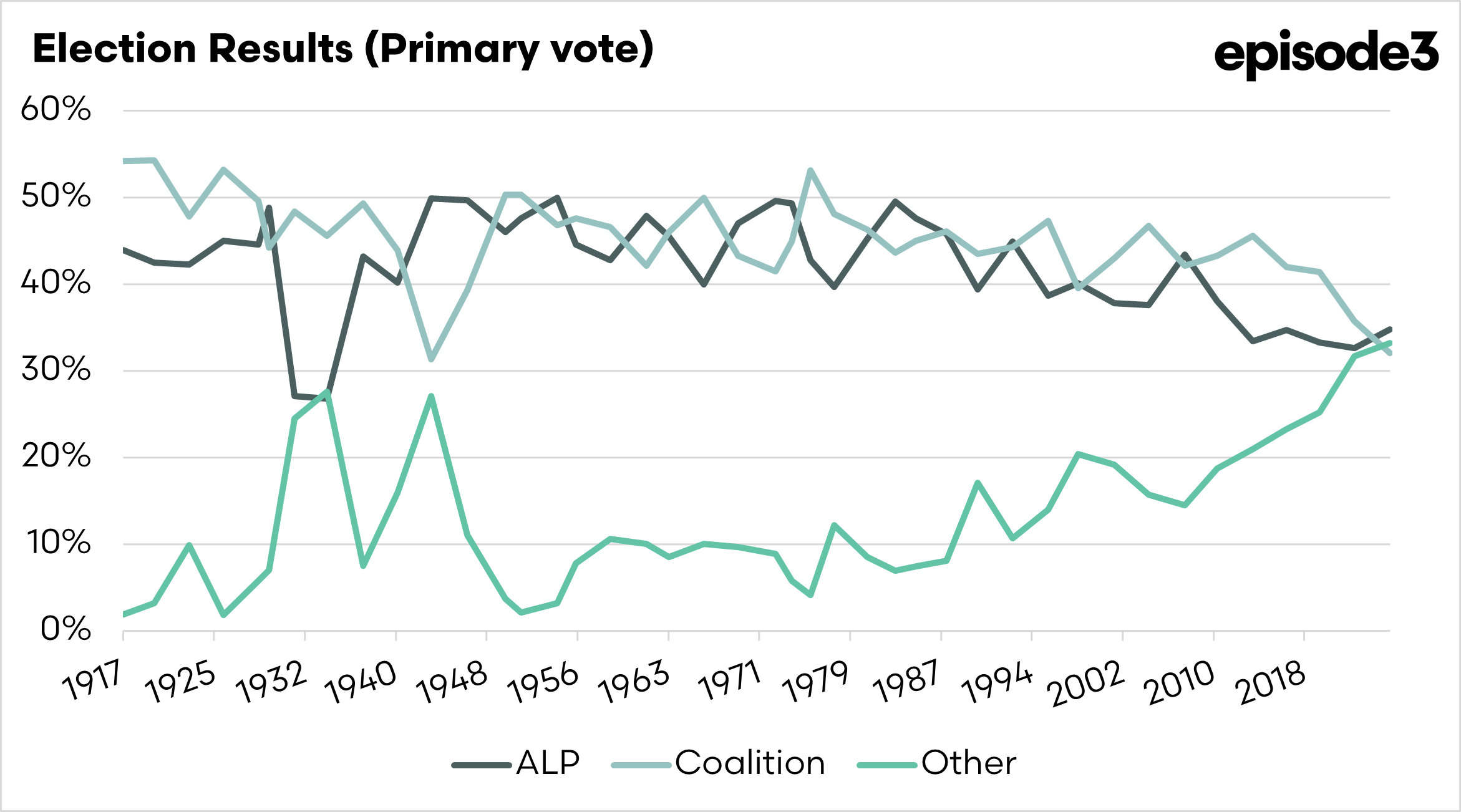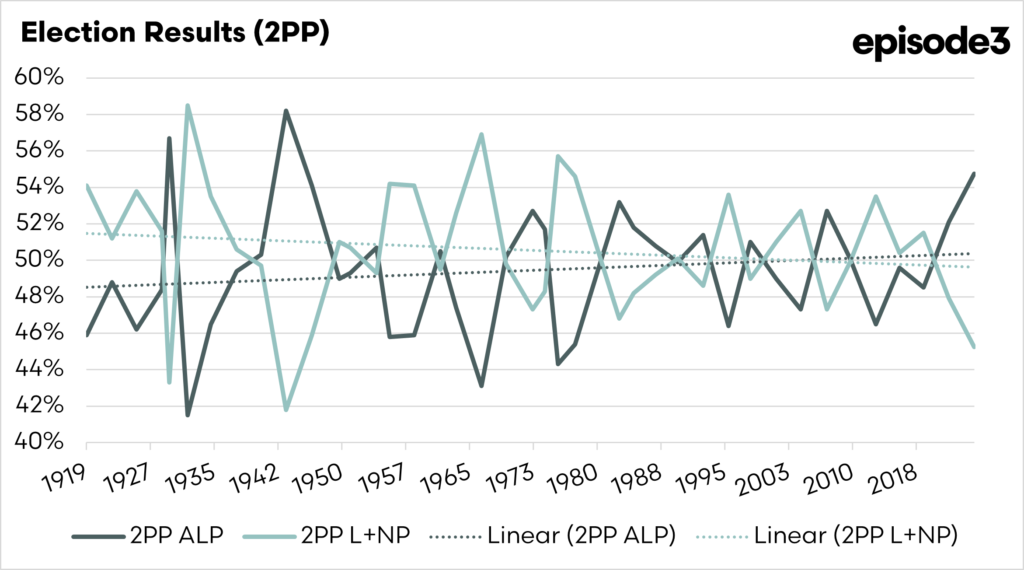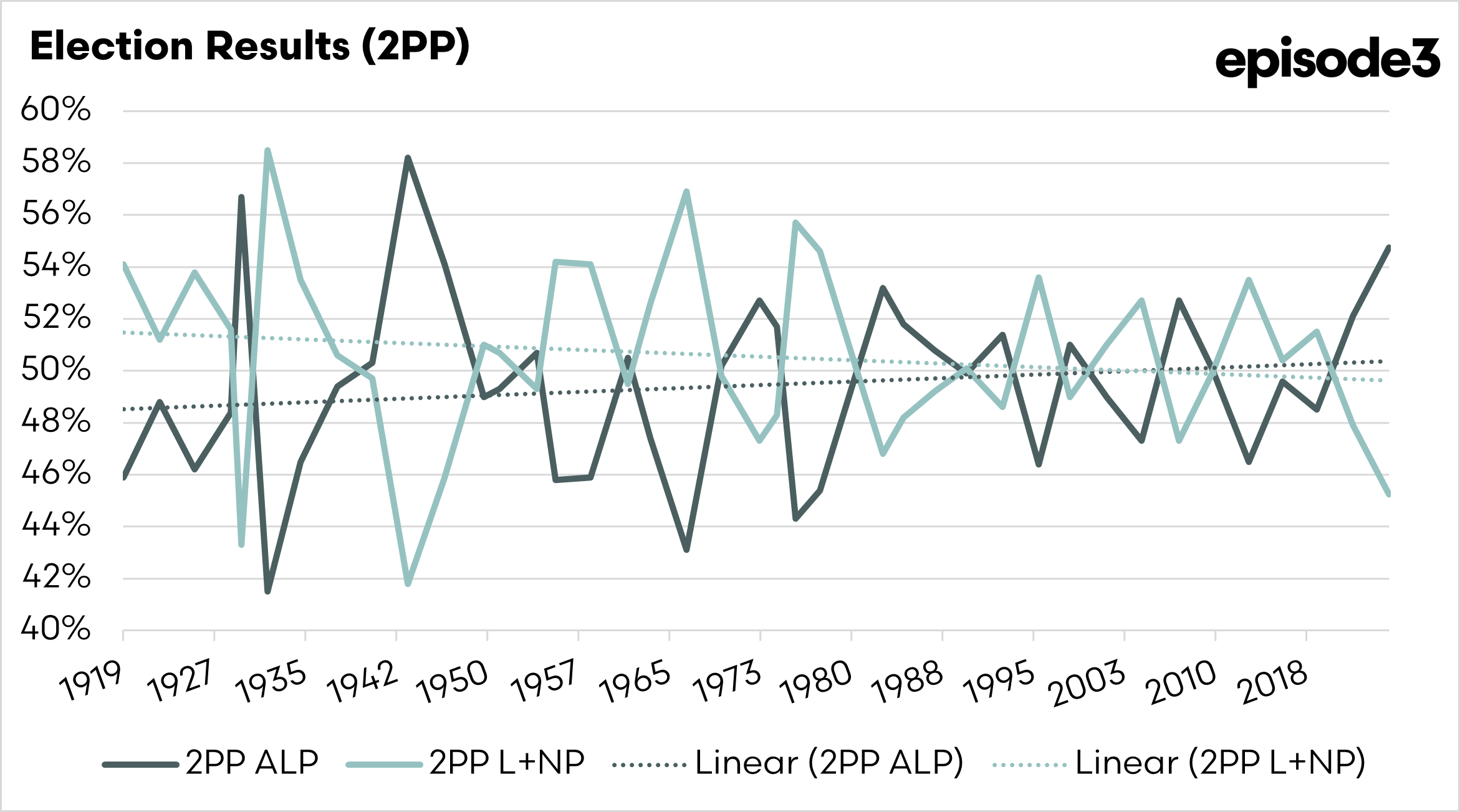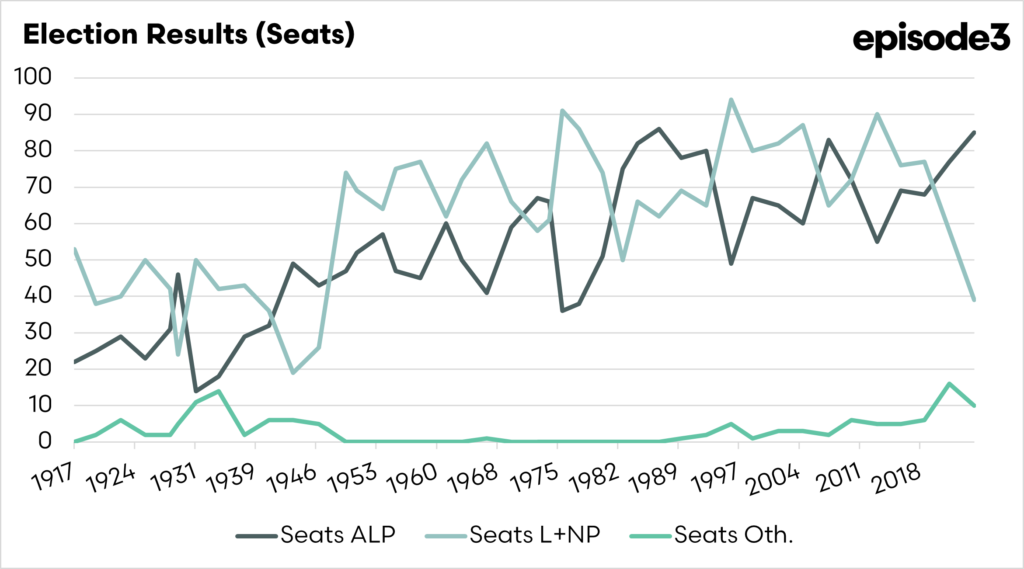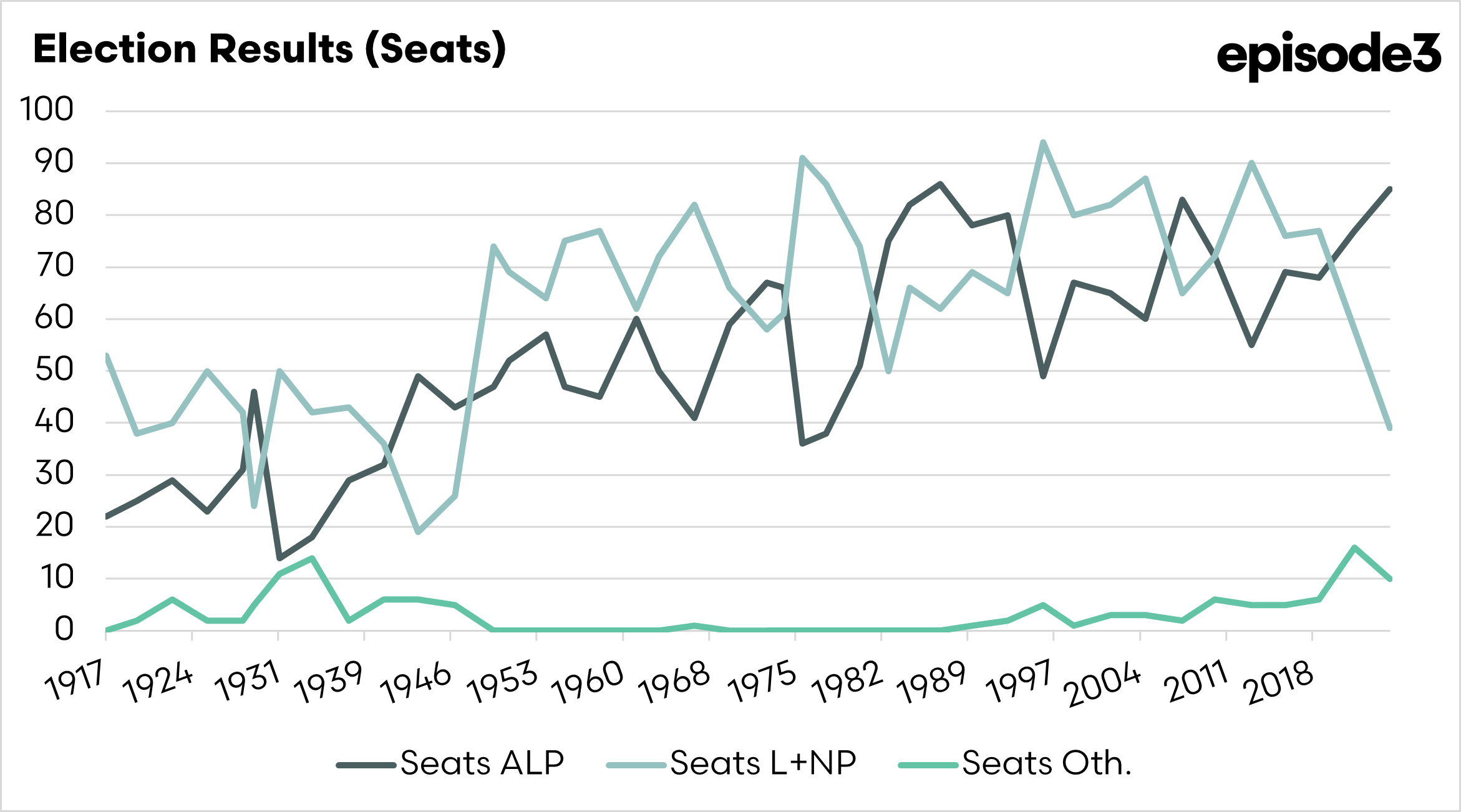Post election soul searching for agriculture
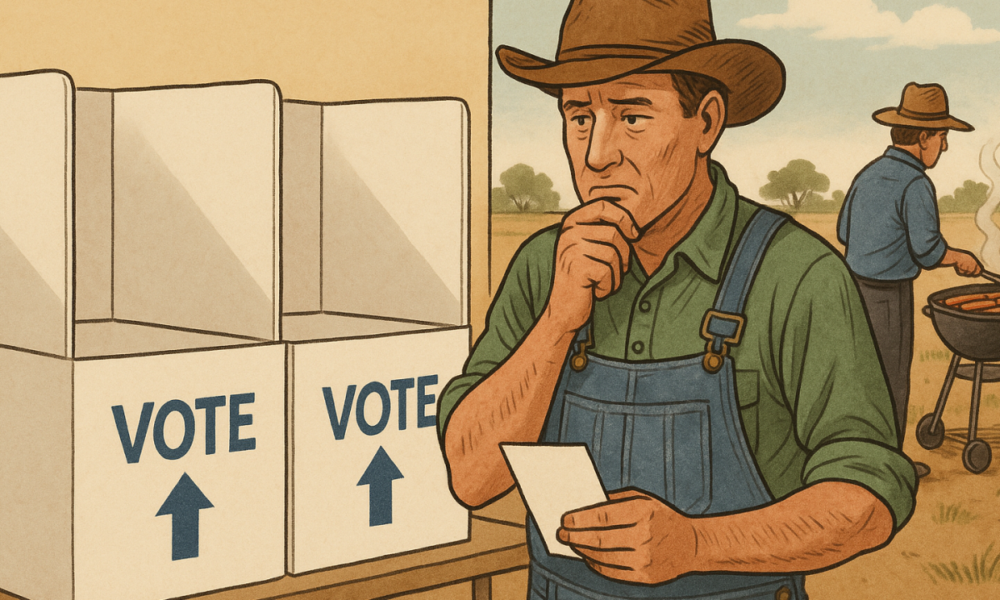
The election is over and done with, the ALP have won with a landslide victory. Social media has generated all sorts of discussions from the winners and losers.
The campaign for the next election started on Sunday morning, and there will be a lot of soul-searching. I thought I would add my thoughts to those of the hundreds of other analysts who are giving their views for what they are worth.
Go further right?
I have seen many comments from those who favour the right wing that the coalition was not right-wing enough. The coalition would not have won if it had been more right-wing.
Shifting further to the right may energise the Coalition’s base, but it risks alienating voters in the political centre who are crucial to winning marginal seats.
Electoral trends suggest that a significant portion of the electorate, particularly in suburban and urban fringe areas, is less responsive to culture war rhetoric and more focused on issues like cost of living, climate policy, and integrity in government. By doubling down on a more conservative platform, the Coalition risks narrowing its appeal at a time when broadening its reach is essential to regain government.
You can be ideologically right-wing, but if you don’t win an election, it doesn’t matter. The extremes are no longer working. The Greens, who are considered extreme left, have lost seats and votes. People are struggling with the cost of living; they don’t want to vote for the extremes.
Culture war ambivalence.
Identity politics of the kind used by Donald Trump, where cultural divisions are weaponised to mobilise political support, tends to fall flat in Australia’s political landscape. While segments of the population express fatigue with symbolic gestures, broad hostility toward practices like the Welcome to Country generally alienates more voters than it attracts. Efforts to mimic Trump-style politics by railing against Indigenous acknowledgements or multicultural inclusion often come across as imported and inauthentic, failing to resonate beyond a narrow fringe.
Moreover, the Australian electorate has shown a limited appetite for hardline culture war narratives when they distract from the factors that actually impact most of us.
Attempts to stir resentment over things like Welcome to Country can backfire, particularly in suburban areas that want politics to focus on practical issues like housing, healthcare, and infrastructure. While there is space for honest debate around national identity and symbolism, it must be conducted from a position of respect on all sides.
Trump is an anathema to the middle
Trump won his election on culture wars, and by many on the right, he is viewed as a messiah figure. For many, he can seemingly do no ill, but for the majority of the middle in countries outwith America, he is anathema.
The Trump effect is real in moderate Western countries. In Canada and Australia, the left was perceived as the losing side for much of the past couple of years. The left won with a whopping landslide in both elections, and the opposition leaders both lost their seats.
Dutton and his party aligned themselves with Trump too early; they should have waited to see how the wind blew. Polling has shown that a significant majority (66%) of Australians felt that the US could not be trusted as a security ally. Trump is popular with the right, and the right were always going to vote for the Coalition, or coalition-preferencing parties. So why alienate the middle for a vote you already have?
Going against the public sector worker
The announcement of Jacinta Price as the ‘DOGE’ leader, calls to force public sector workers back to the office and to sack 41,000 public servants. These were calls straight from the Trump playbook.
You only have to see the reaction to Elon since he moved into his role at DOGE to understand that this is unpopular. I wholeheartedly agree with improving the efficiency of government departments; that is common sense, but aligning it with the Trump/Musk DOGE is nonsense on stilts.
I have worked from home on and off for more than a decade, both as an employee and as a small business owner. It works well for me, as my work is flexible. That being said, I’m a little bored with it, so if anyone is looking to sublet a desk in Canberra, reach out!
The forcing of public sector workers back to the office was deeply unpopular. The assumption is that anyone working from home is sitting there in the garden with a book and a glass of wine in hand. People working from home are actually working from home. Employees like this flexibility to work from home, and organisations should like the lower cost of maintaining offices.
Dutton also called for the sacking of 41,000 public servants. There are 2.5 million public sector workers in Australia, representing one in five workers. Calling for the sacking of public servants en masse would have been something that all public servants would fear.
Don’t attack an ‘industry’ responsible for one of every five payslips.
Nationals should become power brokers
The Nationals have a strategic opportunity to redefine their political identity by stepping away from the formal Coalition with the Liberals and instead pursuing a more independent, case-by-case approach to alliances. For years, the Nationals have been perceived as subordinate to the Liberals, often compelled to support urban-centric policies that clash with the priorities of regional and rural Australia. By uncoupling from the Coalition agreement, the Nationals would be free to negotiate on legislation based on the direct interests of their constituents rather than party unity.
Operating independently would give the Nationals leverage to negotiate better outcomes on critical issues such as water policy, regional infrastructure, agriculture, and decentralisation, without being tied to ideological positions, rather than being a junior partner in a losing alliance.
Agriculture will have a challenge.
ALP is in power, and I expect them to hold that power after the next election. However, ALP does not have many votes to win in rural electorates. Let’s be honest: Most in the country and the agricultural industry are ‘Rusted on*’ to the coalition. Even if ALP presented the best gold-plated agricultural policies, they would likely not win many votes.
The most contentious issue during the last term of the government was the ban on live sheep exports. Had the ALP decided to reverse this ban before the election, how many sheep producers in WA would have voted for them?
The ag lobby will have to be apolitical; they will need to work with the labor government for the next three to six years. The agriculture lobby group must remain apolitical to effectively represent farmers’ and rural communities’ diverse and regionally dispersed interests, regardless of which political party holds power. Aligning too closely with one side of politics risks marginalising the group’s influence during periods of government change and can undermine its credibility.
An apolitical stance ensures the industry can work constructively with all parties to secure outcomes on critical issues such as trade, biosecurity, climate resilience, water access, and regional investment. It also strengthens the group’s legitimacy in public debates, presenting its advocacy as driven by evidence and industry need, rather than ideology or partisan loyalty.

